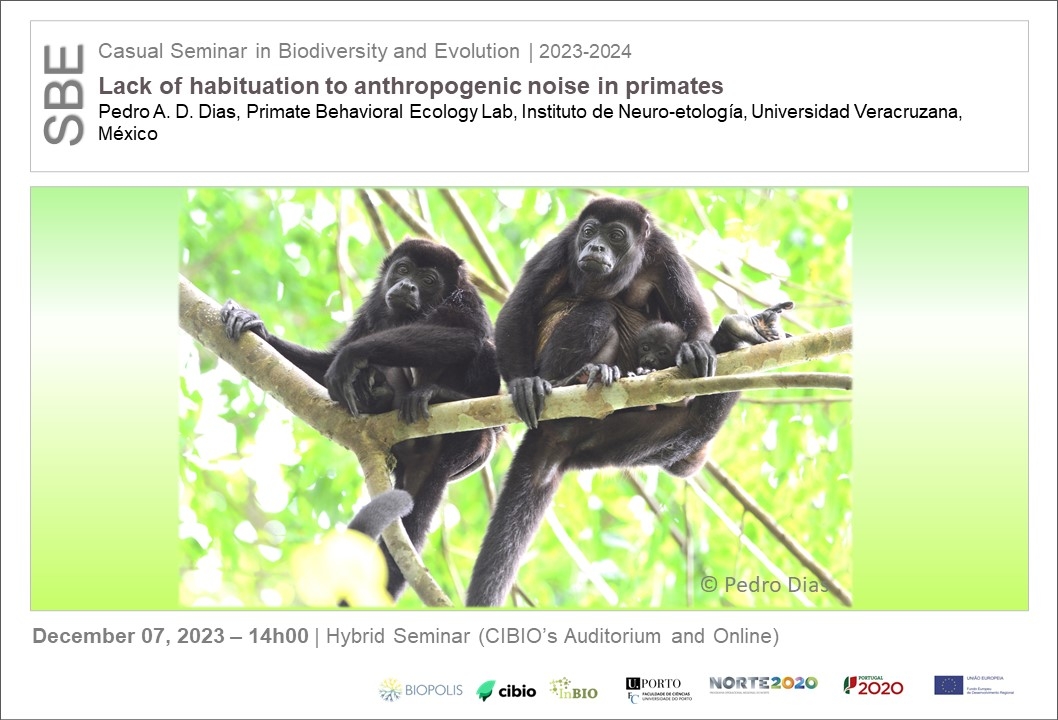Lack of habituation to anthropogenic noise in primates
07 Dec 2023 - Pedro A. D. Dias, Primate Behavioral Ecology Lab, Instituto de Neuro-etología, Universidad Veracruzana, México | 14h00 | Hybrid Seminar

CASUAL SEMINAR IN BIODIVERSITY AND EVOLUTION
Learning allows for the coupling of behavioral and physiological responses to perceived stimuli significance. From an optimization perspective, individuals should wan responses toward stimuli that are not biologically relevant, and thus, habituate. Habituation is conditional on several properties of both the individual and stimuli, but in general, recurrent exposure and strong stimuli intensity lead to quicker and prolonged habituation. There is evidence of wildlife habituation to anthropogenic stimuli that has been interpreted as both positive (e.g., prevents distraction) and negative (e.g., increases vulnerability to hunting). Here, we focus on the behavioral and physiological responses of wild mantled howler monkeys (Alouatta palliata) to natural and experimental anthropogenic noise as an example of lack of habituation. We argue that even if repeated exposure leads to decreased response likelihood and/or intensity, the complexity of noise stimuli precludes true habituation. In this scenario, individuals are expected to incur multiple costs, ranging from psychological stress to disrupted social structure.
Pedro Dias is a primatologist and researcher at the Instituto de Neuro-etología, Universidad Veracruzana (México), where he leads the Primate Behavioral Ecology Lab. Over the last 25 years he has studied the mechanisms and functions of the behavior of Mexican primates, both in the wild and in captivity. His research has covered a variety of topics, including social behavior, communication, endocrinology, and genetics.
[Host: Amalia de la Torre and Gonçalo Cardoso, Behavioural Ecology - BE]
Click here to watch the seminar recording